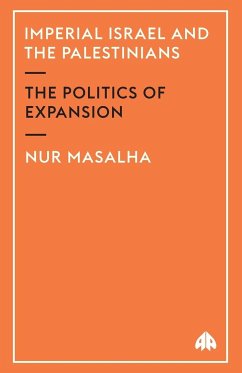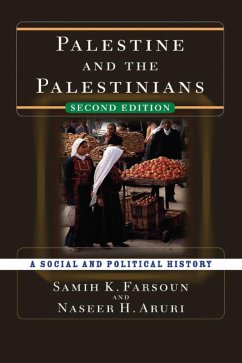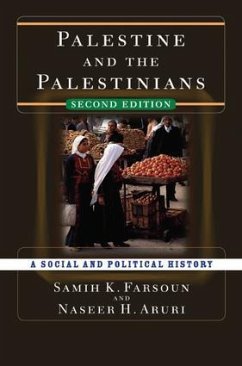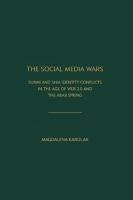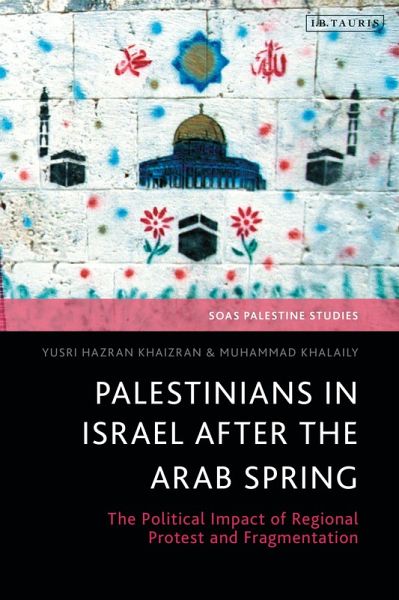
Palestinians in Israel after the Arab Spring
The Political Impact of Regional Protest and Fragmentation
Versandkostenfrei!
Versandfertig in 1-2 Wochen
105,99 €
inkl. MwSt.

PAYBACK Punkte
53 °P sammeln!
The Arab Spring initially ignited excitement for Arab society in Israel. But following the outbreak of the uprising in Syria, Israeli-Arab attitudes shifted. This book demonstrates why the Arab Spring, and especially the war in Syria, provoked such deep fragmentation for Palestinians in Israel. Based on governmental and public surveys, the book shows that many more Arab-Palestinian citizens became supportive of instrumental integration with Israeli politics following the Arab Spring. But the momentous events convinced other Arab citizens to abandon the connection between finding a solution for...
The Arab Spring initially ignited excitement for Arab society in Israel. But following the outbreak of the uprising in Syria, Israeli-Arab attitudes shifted. This book demonstrates why the Arab Spring, and especially the war in Syria, provoked such deep fragmentation for Palestinians in Israel. Based on governmental and public surveys, the book shows that many more Arab-Palestinian citizens became supportive of instrumental integration with Israeli politics following the Arab Spring. But the momentous events convinced other Arab citizens to abandon the connection between finding a solution for the Palestinian problem if it involved integration with the state. At the same time, this book reveals that the younger generations wanted to search for alternatives to replace the existing political frameworks completely and were inspired to form a new model of political activism. This is the first study to explore how the Arab Spring affected Arab society in Israel in terms of identity, political discourse and behaviour. In doing so it covers the new policy adopted by the central government in Israel, formed after 2011 to strengthen civic discourse amongst Arab citizens. It has been neither Israelization nor Zionization; but Instrumental integration which meets the conditional citizenship offered by the state.



